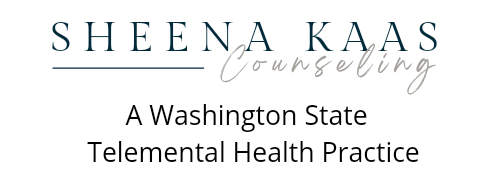Frequent Questions
General Questions
How can I know when it is time to get support?
If you’re experiencing:
- Change in appetite
- Trouble concentrating
- Difficulty sleeping
- Low motivation
- Isolation from others
- Low energy
- Depressed mood
- Crying spells
- Low self-esteem
- Anxiety
- Fear
Then mental health counseling can help.
What is a Licensed Mental Health Counselor?
A Licensed Mental Health Counselor (LMHC) is a healthcare provider who addresses mental, emotional, behavioral, and relationship issues. An LMHC must complete specific coursework in counseling psychology and have at least a Master’s degree. An LMHC can provide a diagnosis for insurance purposes and for treatment. An LMHC does not prescribe medication.
Do I need a referral to see you?
You do not need a referral from a doctor to work with a mental health counselor.
I already work with therapist. Can I work with you too?
It is not recommended that you work with two mental health providers for the same issue. If, for example, you meet with a provider for individual counseling and you want to work with me for couples counseling then you would be seeing two different providers for two separate purposes. If you are unsure whether this applies to you, schedule a consultation to discuss further.
Treatment Questions
Can I meet with you in person?
I do not meet with people in person at this time.
What are the limits of your practice?
I find that individuals who are actively self-harming or suicidal and who need to be monitored, or who need accountability to follow through with a safety plan, require a different level of care than I am able to provide within the scope of this practice. If you are unsure whether this applies to you, schedule a consultation and, if my services are not a good fit, I will assist you with finding a provider who will meet your needs.
Do you meet with people out of state?
I am licensed to work with people who are physically located in Washington State at the time of service.
How long are appointments?
Standard session time is 50 minutes.
How often will we meet?
To begin, we will meet weekly to every other week to get a good momentum going. After about six sessions we will reassess frequency.
How long will treatment take?
Plan on at least six sessions to treat anxiety and depression, longer if there is underlying trauma. Plan on six to twelve sessions for couples counseling. Plan on six months of weekly to biweekly appointments for trauma recovery. These are general guidelines; there is no limit to the number of sessions. Some individuals utilize counseling for ongoing self-improvement.
Do you work with children?
I work with individuals ages 16 and up.
Fees and Insurance Questions
Do you take insurance?
I am not in network with any insurance companies. Please check with your insurance about out-of-network coverage by asking, “What are my out-of-network benefits for behavioral health services?” If your insurance provides out-of-network reimbursement and you would like to take advantage of these benefits, I will provide documentation of service (a superbill) that you may submit with your claim.
What form of payment do you accept?
I accept all major debit and credit cards.
When is payment due?
Payment is due at the time of service.
How can I bring cost down?
Plan to maximize your time in therapy by coming prepared with an agenda of issues that you hope to address. You can reduce the number of sessions and frequency of sessions by completing homework between meetings. Often, clients can cut session time in half doing these things. My recommendations will vary on a case-by-case basis. If cost is a concern for you, please bring this forward in your consultation.

